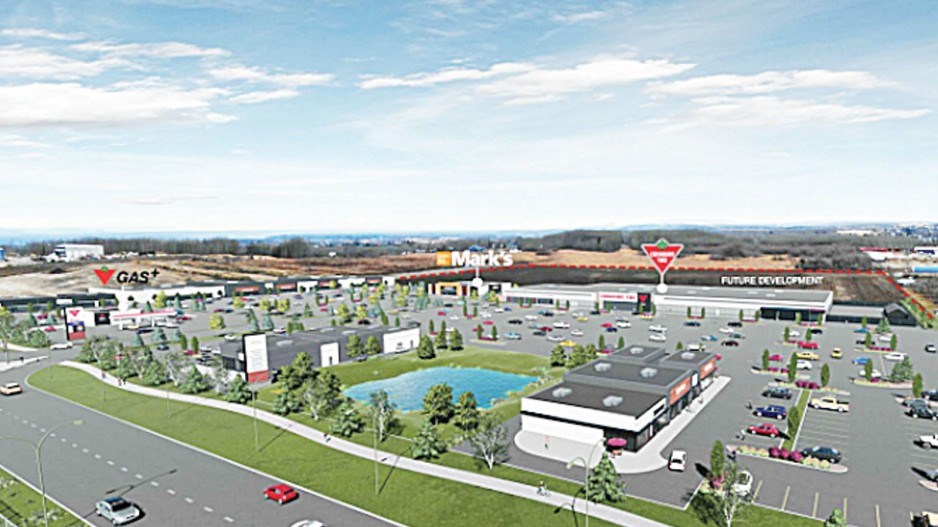Nine months after the $40 billion LNG Canada liquefied natural gas (LNG) project was approved, Fort St. John is seeing an uptick in both commercial development and residential real estate values.
The second-biggest city in northern B.C. is a key pivot for TransCanada’s Coastal GasLink (CGL) pipeline that will be run 670 kilometres from the northern gas fields to the LNG Canada terminal at Kitimat on the northwest coast.
TransCanada will require approximately 2,000 workers for the $4.8 billion GaslLink route. Construction of the pipeline was three months behind schedule as of mid-June, however, due to the blockade of a key section by protesters led by Wet’suwet’en hereditary chiefs.
Contracts on the project adding up to $620 million have already been awarded to First Nations and a further $400 million to other companies, according to court documents from CGL lawyer Kevin O’Callaghan. He said benefit agreements have been reached with 20 Indian bands along the route, including the five Wet’suwet’en elected bands, adding up to $338 million over 25 years.
A BC Supreme Court ruling on continuing an injunction against the protesters is expected within a few months.
Meanwhile, Canadian Tire has launched an expansion project in Fort St. John with construction expected to start in July. That project had been delayed as a number of issues are resolved around traffic management and site servicing.
“This is the biggest retail project in Fort St. John. It is large and complex with many stakeholders and it is not uncommon to encounter some delays in the process,” said David Bianchi, vice-president of real estate development at Canadian Tire (CT).
A multi-phased development with a 154,000-square-foot footprint, the project includes the construction of a 126,000-square-foot Canadian Tire store, to complete by 2020.
In 2016, CT Real Estate Investment Trust bought an enclosed mall together with four acres of excess lands for the Fort St. John development. The total cost of the acquisition, including transaction costs, was approximately $36.7 million, said a CT release.
The development will include a new gas bar, Mark’s clothing store and other retail once fully built out.
In the first half of 2019, Fort St. John has issued $28.8 million in building permit values, double the pace at the same time last year.
Housing sales up
In the first half of this year, Fort St. John, population 20,000, saw 258 residential properties sell for a total of $85.4 million, reports the BC Northern Real Estate Board (BCNREB).
The 129 detached houses that sold had a median price of $382,000, up from $364,600 a year earlier. In addition to the houses, nine parcels of vacant land and 30 homes on acreage sold. Perhaps surprisingly, residential sales volumes were down from $90 million in the same period last year. As of the end of June, there were 687 residential properties of all types available for purchase in Fort St. John, based on multiple-service listings.
As of June, the median price of a detached house in Fort St. John was higher than in Prince George, the largest city in the north, and is third highest in the north behind Kitimat, at $392,000, and Terrace, at $386,000, the board reports.
“Many of the communities in our board region saw a decrease in the number of sales and number of listings,” BCNREB president Leah Mayer noted in a release.
Mike Ellerington, a real estate agent with Re/Max Action Realty in Fort St. John, said he has not seen a rush of residential investors from out of town as work on the LNG pipelines ramps up, but he said sales activity has been steadily increasing this year.
“The hot zone for buyers is houses priced at under $400,000,” he said, estimating that average detached-house prices have increased about $20,000 since the LNG announcement.
“You have to remember, Fort St. John has been down since 2015,” Ellerington said, suggesting local buyers and out-of-town investors are likely waiting for the pipeline work to begin in earnest.




